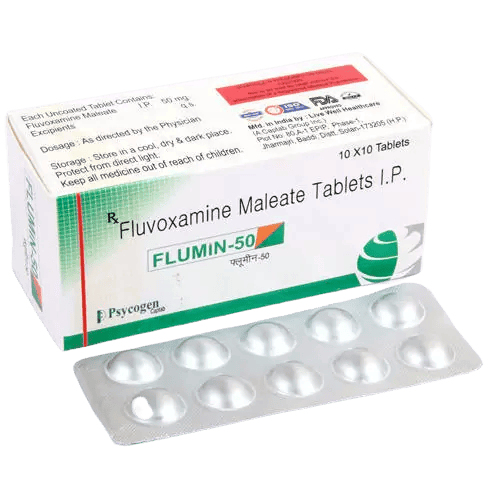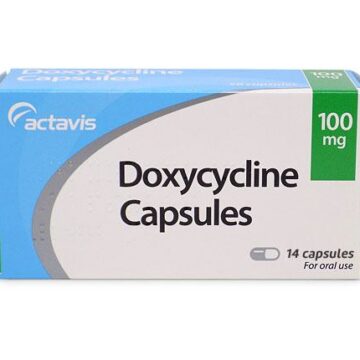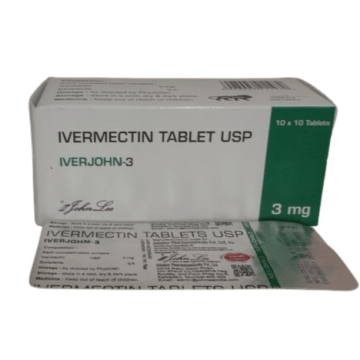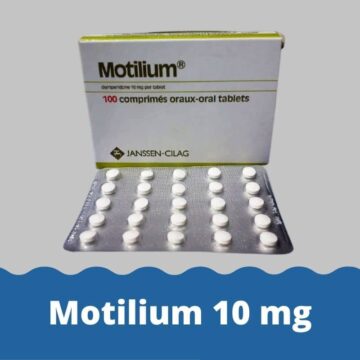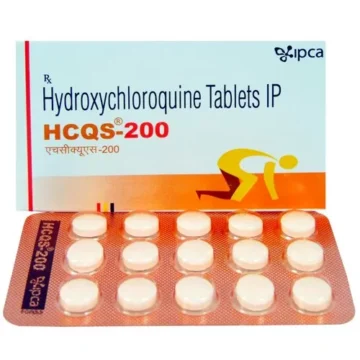What is Fluvoxamine Maleate?
Fluvoxamine Maleate is a medication that belongs to the class of selective serotonin reuptake inhibitors (SSRIs). It is primarily used for the treatment of various mental health conditions, including obsessive-compulsive disorder (OCD), social anxiety disorder (SAD), panic disorder, and major depressive disorder.
Fluvoxamine Maleate works by increasing the levels of serotonin, a neurotransmitter in the brain, which helps regulate mood, emotions, and behavior. By selectively inhibiting the reuptake of serotonin, this medication helps improve symptoms associated with the aforementioned mental health disorders.
It is important to note that Fluvoxamine Maleate should only be used under the supervision and prescription of a healthcare professional. The dosage and duration of treatment will depend on the specific condition being treated and individual patient factors. It is essential to follow the instructions provided by your healthcare provider and to consult them for any questions or concerns related to this medication.
How Does Fluvoxamine Maleate Tablet Works?
Flumin 50 Tablet, a distinctive selective serotonin reuptake inhibitor (SSRI) antidepressant, operates by heightening the levels of serotonin—a vital neurotransmitter in the brain. This remarkable mechanism enhances both emotional well-being and the alleviation of physical symptoms associated with depression, while effectively relieving symptoms related to obsessive-compulsive disorders.
By significantly augmenting the serotonin levels in the brain, Flumin 50 Tablet effectively enhances your mood, diminishes anxiety and tension, and promotes restful sleep. Moreover, it boasts a reduced incidence of side effects when compared to its older antidepressant counterparts. It’s important to note that the full effects of this medication may take approximately 4-6 weeks to manifest, so it is crucial to continue taking it as prescribed, even if immediate improvements are not apparent. Discontinuing its use should only be done under the guidance of your physician.
In addition to alleviating symptoms of various anxiety disorders, including obsessive-compulsive disorder, Flumin 50 Tablet achieves this by augmenting the levels of serotonin in the brain. Notably, it offers a more favorable side effect profile than older antidepressants and is typically administered once daily. This medication fosters a sense of calmness and equips individuals with enhanced problem-solving abilities. Complementing the treatment with regular exercise and a healthy diet can further contribute to improving mood. It is vital to adhere to the prescribed dosage until instructed otherwise by your healthcare professional.
Fluvoxamine 50mg Uses
Fluvoxamine, an effective medication, is primarily prescribed for the treatment of obsessive-compulsive disorder (OCD). This medication aids in diminishing unwanted and persistent thoughts (obsessions) and helps reduce the urge to engage in repetitive behaviors (compulsions) that disrupt daily functioning, such as excessive hand-washing, counting, or checking. Fluvoxamine belongs to a class of drugs known as selective serotonin reuptake inhibitors (SSRIs) and functions by rebalancing the levels of serotonin, a natural substance in the brain.
To ensure safe and appropriate usage of fluvoxamine orally, it is essential to carefully read the Medication Guide and, if provided, the Patient Information Leaflet by your pharmacist. If you have any queries, consult your doctor or pharmacist for clarification.
Take this medication orally, either with or without food, as directed by your doctor. Typically, it is taken once daily at bedtime. In some cases, your doctor may recommend a twice-daily dosage, with one dose in the morning and the other at bedtime. If you are prescribed different doses for the morning and bedtime, take the larger dose at bedtime.
The dosage of fluvoxamine is determined based on various factors, including your medical condition, response to treatment, age, and concurrent medications. Inform your doctor and pharmacist about all the products you are using, including prescription drugs, over-the-counter medications, and herbal products. In children, the dosage may also be influenced by age and gender. To minimize the risk of side effects, your doctor may initiate treatment with a low dose and gradually increase it. Adhere strictly to your doctor’s instructions.
Avoid increasing the dosage or extending the duration of treatment beyond the prescribed limits. Doing so will not accelerate your recovery but may heighten the likelihood of experiencing adverse effects. Consistency is crucial for maximum efficacy, so take fluvoxamine regularly at the same time(s) each day. Employ reminders if necessary to help you remember.
Continue taking this medication even if you start feeling better. Do not discontinue usage without consulting your doctor, as stopping abruptly may exacerbate certain conditions. You might encounter symptoms such as mood swings, headaches, fatigue, changes in sleep patterns, and brief sensations resembling electric shocks if the drug is discontinued abruptly. To mitigate these symptoms during the discontinuation process, your doctor may advise a gradual reduction of the dosage. For further guidance, consult your doctor or pharmacist. Promptly report any new or worsening symptoms that arise.
Please note that it might take several weeks before you experience the full therapeutic benefits of fluvoxamine. If your condition does not improve or worsens, inform your doctor accordingly.
Dosage
Flumin 50 Tablet offers the flexibility of consumption, whether with or without food. To ensure optimal symptom control, the appropriate dosage and frequency will be determined by your doctor. Initially, your doctor may prescribe a lower dose, gradually increasing it as necessary. It is crucial not to alter the dosage or discontinue the medication without consulting your doctor, even if you experience an improvement in your well-being. Failure to adhere to this caution may exacerbate your condition or result in undesirable withdrawal symptoms such as anxiety, restlessness, palpitations, dizziness, and sleep disturbances. Your doctor’s guidance is essential throughout your treatment journey.
Missed Dose:
In the event that you forget to take a dose, promptly take it once you recollect. However, if it is almost time for your next scheduled dose, it is advisable to forgo the missed one. Stick to your regular dosing schedule for the subsequent dose and avoid doubling up on your medication to compensate.
Overdose:
In case of an overdose of Fluvoxamine 50mg Tablets, it is crucial to seek immediate medical attention or contact your local poison control center. Overdosing on any medication can be potentially harmful and requires prompt professional assistance.
Please remember not to induce vomiting unless instructed to do so by a healthcare professional. Provide them with all the necessary information, such as the number of tablets ingested, to help them assess the situation accurately. It’s important to prioritize your safety and well-being by seeking appropriate medical help without delay.
Important Advisory of Fluvoxamine Tablets
Before you start taking fluvoxamine, it’s important to inform your doctor or pharmacist about any known allergies you have or if you experience allergies to any substances. This product may contain inactive ingredients that could trigger allergic reactions or other complications. It is advisable to consult your pharmacist for more detailed information.
Before initiating the use of this medication, disclose your medical history to your doctor or pharmacist, particularly if you have a personal or family history of bipolar or manic-depressive disorder, suicide attempts, liver problems, seizures, low sodium levels in the blood, bleeding problems, or a personal or family history of glaucoma (specifically angle-closure type).
This medication may induce dizziness or drowsiness. Consuming alcohol or marijuana (cannabis) may intensify these effects. Refrain from driving, operating machinery, or engaging in activities requiring alertness until you can safely do so. It is important to avoid alcoholic beverages. If you use marijuana (cannabis), discuss it with your doctor.
Fluvoxamine can potentially cause a heart rhythm condition known as QT prolongation. In rare cases, QT prolongation can lead to serious, and occasionally fatal, fast or irregular heartbeat, as well as other symptoms like severe dizziness and fainting that require immediate medical attention.
The risk of QT prolongation may be higher if you have specific medical conditions or if you are taking other medications that can cause QT prolongation. Prior to using fluvoxamine, inform your doctor or pharmacist about all the medications you are taking and disclose any of the following conditions: certain heart problems (such as heart failure, slow heartbeat, or QT prolongation observed in an EKG), or a family history of specific heart problems.
Having low levels of potassium or magnesium in your blood can also increase the risk of QT prolongation. This risk may be further heightened by the use of certain drugs (like diuretics or “water pills”) or if you have conditions such as severe sweating, diarrhea, or vomiting. Consult your doctor about the safe use of fluvoxamine in these circumstances.
Before undergoing surgery, inform your doctor or dentist about all the products you are currently using, including prescription drugs, nonprescription drugs, and herbal products.
Older adults may be more susceptible to the side effects of this medication, particularly bleeding, loss of coordination, and QT prolongation. Older adults may also have a higher likelihood of developing an electrolyte imbalance (hyponatremia), especially if they are taking diuretics. Loss of coordination can increase the risk of falls.
Children may be more sensitive to the side effects of this medication, specifically loss of appetite and weight loss. It is recommended to monitor the weight and height of children who are taking this medication.
During pregnancy, this medication should only be used when clearly necessary, as it may harm an unborn baby. Additionally, babies born to mothers who have used this medication during the last three months of pregnancy may rarely experience withdrawal symptoms such as difficulties with feeding or breathing, seizures, muscle stiffness, or persistent crying. If you observe any of these symptoms in your newborn, promptly inform the doctor.
Since untreated mental or mood disorders (such as depression, obsessive-compulsive disorder, or post-traumatic stress disorder) can be serious conditions, it is important not to discontinue this medication unless instructed by your doctor. If you are planning to become pregnant, are currently pregnant, or suspect you might be pregnant, discuss the benefits and risks of using this medication during pregnancy with your doctor immediately.
This drug passes into breast milk and may have adverse effects on a nursing infant. Consult your doctor before breastfeeding while taking this medication.
Side Effects of Fluvoxamine 50mg Pills
You may experience a range of symptoms such as nausea, vomiting, drowsiness, dizziness, loss of appetite, trouble sleeping, weakness, and sweating while taking this medication. If any of these effects persist or worsen, it is important to inform your doctor or pharmacist promptly.
It’s essential to remember that your doctor has prescribed this medication because they have determined that the benefits outweigh the potential risks of side effects. Many individuals who use this medication do not experience severe side effects.
However, you should immediately inform your doctor if you encounter any serious side effects, including easy bleeding or bruising, shaking (tremors), decreased interest in sex, or changes in sexual ability.
In the event of very serious side effects, seek medical assistance immediately. These include:
- fainting,
- irregular heartbeat,
- black stools,
- vomit that resembles coffee grounds,
- seizures,
- eye pain,
- swelling or redness,
- dilated pupils,
- or vision changes such as perceiving rainbows around lights at night or blurred vision.
It is important to note that this medication may increase serotonin levels and, in rare cases, lead to a severe condition known as serotonin syndrome/toxicity. The risk of developing this condition increases if you are taking other medications that also increase serotonin levels. Therefore, inform your doctor or pharmacist about all the medications you are taking. If you experience symptoms such as rapid heartbeat, hallucinations, loss of coordination, severe dizziness, severe nausea/vomiting/diarrhea, muscle twitching, unexplained fever, or unusual restlessness, seek immediate medical assistance.
Although rare, males may occasionally experience a painful or prolonged erection lasting four hours or more. If this happens, discontinue the use of the medication and seek medical help immediately to avoid potential long-term complications.
While severe allergic reactions to this medication are infrequent, it is crucial to seek immediate medical help if you observe any signs of a serious allergic reaction, such as rash, itching, swelling (particularly of the face, tongue, or throat), severe dizziness, or difficulty breathing.
This list does not encompass all possible side effects. If you notice any other effects not mentioned above, contact your doctor or pharmacist for further guidance.
Other Drug Interactions with Fluvoxamine Tablets
The interaction of drugs can have an impact on the effectiveness of your medications and increase the potential for serious side effects. It is important to note that this information does not encompass all possible drug interactions. To ensure the safe use of your medications, maintain a comprehensive list of all the products you are currently using, including both prescription and non-prescription drugs, as well as herbal products, and share this list with your doctor and pharmacist. Any adjustments to your medication regimen, such as starting, stopping, or altering dosages, should only be done with the approval of your doctor.
There are certain products that may interact with this particular medication. These include other drugs known to cause bleeding or bruising, such as antiplatelet medications like clopidogrel, non-steroidal anti-inflammatory drugs (NSAIDs) like ibuprofen or naproxen, and “blood thinners” like dabigatran or warfarin. If you are taking aspirin in low doses (usually 81-162 milligrams per day) for the prevention of heart attacks or strokes, as directed by your doctor, you should continue doing so unless instructed otherwise. It is recommended that you consult your doctor or pharmacist for further details.
Please be aware that numerous drugs, not just fluvoxamine, can potentially affect the rhythm of your heart, causing QT prolongation. Some examples of such medications include pimozide, thioridazine, and others.
This medication may slow down the elimination of other drugs from your body, which could affect their efficacy. Examples of affected drugs include:
- alosetron,
- clozapine,
- methadone,
- melatonin,
- ramelteon,
- tacrine,
certain benzodiazepines like
- alprazolam,
- diazepam, or
- triazolam,
- certain beta-blockers like
- metoprolol or propranolol,
- tricyclic antidepressants such as imipramine
Combining this medication with MAO inhibitors (isocarboxazid, linezolid, metaxalone, methylene blue, moclobemide, phenelzine, procarbazine, rasagiline, safinamide, selegiline, tranylcypromine) can lead to a serious and potentially fatal drug interaction. It is crucial to avoid taking MAO inhibitors during treatment with this medication. Additionally, most MAO inhibitors should not be taken for two weeks before or after using this medication. Consult your doctor for guidance on when to initiate or discontinue the medication in relation to MAO inhibitors.
The risk of serotonin syndrome/toxicity increases when taking other drugs that elevate serotonin levels. These include street drugs like MDMA/”ecstasy,” St. John’s wort, certain antidepressants (including other SSRIs like fluoxetine or paroxetine, and SNRIs like duloxetine or venlafaxine), and tryptophan, among others. Be aware that the risk of serotonin syndrome/toxicity may be higher when starting or increasing the dosage of these drugs.
It is important to note that this medication can enhance the effects of caffeine. It is advisable to avoid consuming large amounts of caffeine-containing beverages like coffee, tea, or colas, as well as consuming significant quantities of chocolate or using non-prescription products that contain caffeine.
Inform your doctor or pharmacist if you are taking other products that induce drowsiness, such as alcohol, marijuana (cannabis), antihistamines (such as cetirizine or diphenhydramine), sleep or anxiety medications (like alprazolam, diazepam, or zolpidem), muscle relaxants, or opioid pain relievers (such as codeine). Additionally, carefully review the labels of all your medications, including
Allergy or cough-and-cold products, as they may contain ingredients that induce drowsiness. Seek guidance from your pharmacist on how to use these products safely.
If you smoke or have recently quit smoking, inform your doctor, as cigarette smoking can affect the blood levels of this medication.
Lastly, be aware that this medication might interfere with certain medical or laboratory tests, potentially leading to inaccurate results. It is crucial to inform all healthcare professionals involved in your care, including laboratory personnel and doctors, about your use of this drug.
Storage Instructions
Please ensure proper storage of this product by keeping it in a cool, dry place at room temperature, away from any sources of light and moisture. It is important to note that storing medications in the bathroom is not recommended. To prioritize the safety of children and pets, always keep all medications out of their reach.
Dispose of this product appropriately by refraining from flushing it down the toilet or pouring it into drains, unless specifically instructed to do so. When the product reaches its expiration date or is no longer needed, please ensure its proper disposal. If you have any questions or need guidance on how to dispose of it, feel free to consult your pharmacist or contact your local waste disposal company for assistance.

